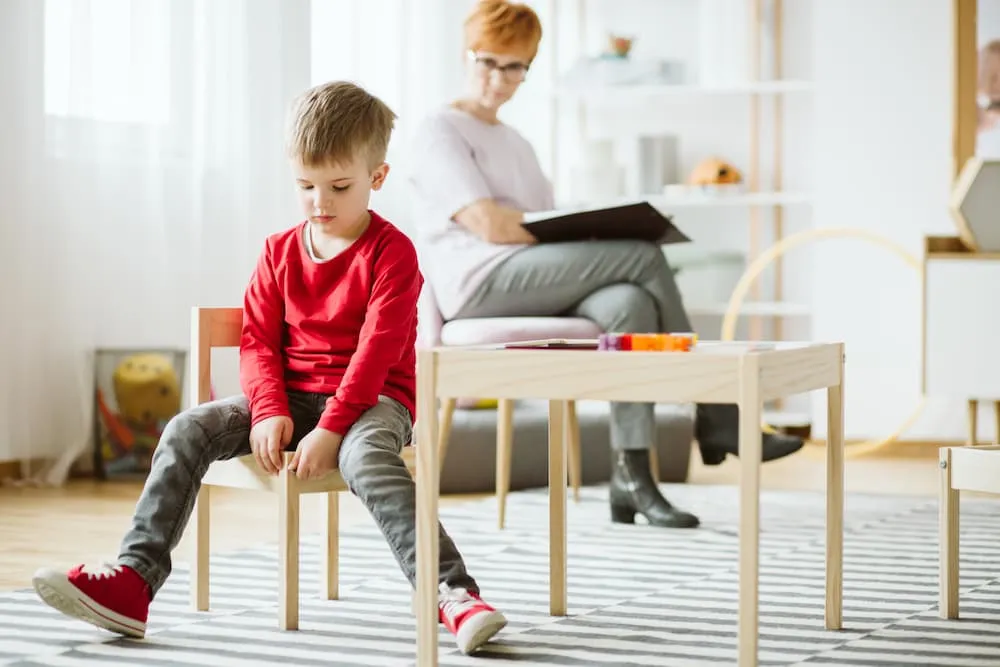If your child is struggling with social anxiety, you're not alone. Many children experience unease or fear in social situations, and as a parent, you naturally want to help them navigate these emotions.
This blog will explore practical strategies for helping your child overcome social anxiety, foster confidence, and enhance social interactions. Together, we can create a supportive and nurturing environment for your child to thrive.
What causes social anxiety in children?
Children with social anxiety may fear being judged, rejected, or embarrassed in social situations.
They might have difficulty meeting other children or joining groups, and they may avoid social situations where they might be the focus of attention or stand out from others.
Physical signs of social anxiety in children can include nausea, stomach aches, blushing, and trembling, read more about causes of childhood anxiety.
What are the signs of social anxiety in children?
Signs of social anxiety disorder in children may include extreme worry about being rejected or judged by others, leading to avoidance of certain activities or situations. These signs usually start between the ages of eight and fifteen.
Knowing how to help a child with anxiety at bedtime is essential for good parenting.
Here are some signs that will help you to identify them better:
- They're often scared of what others will think of them.
- They might also fear embarrassment, separation from their parents or carers, or getting in trouble.
- Need help meeting other children or joining in groups.
- Avoid social situations where they might be the focus of attention or stand out from others (e.g., asking or answering questions in class).
- Physical signs of social anxiety in children can include nausea, stomach aches, blushing, and trembling.
“Social anxiety can have some physical signs too, including nausea, stomach aches, blushing and trembling.”
💡Raising Children
Strategies to manage social anxiety in children
Here are some effective strategies to help manage social anxiety in children, and you can pair them with some stress relief activities for kids to increase effectiveness.
Teach them deep breathing exercises
Deep breathing exercises can help children regulate their emotions and reduce anxiety. Encouraging slow, deep breaths can have a calming effect and promote relaxation.
Introduce mindfulness practices
Introducing mindfulness practices from our Storybook App can equip children with tools to build self-esteem, manage stress, and approach challenges skillfully.
These practices can include exercises encouraging children to tune into their senses and focus on the present moment.
Promote progressive muscle relaxation
Progressive muscle relaxation activities can help children become more mindful of how they tense or relax their muscles, contributing to a sense of physical and mental relaxation.
Enroll your child in social skills groups
Enrolling children in social skills groups can allow them to practice and improve their social interactions, fostering a sense of confidence and competence in social settings.
Focus on positive reinforcement
Positive reinforcement can encourage children to engage in social activities and interactions, reinforce positive behaviors, and build self-confidence.
Practice conversation with role-playing
Role-playing conversations can help children practice and improve their communication skills, making them more comfortable and confident in social situations.

Written By
Francisco Cornejo, a dynamic entrepreneur with a Masters in Communication from RMIT University in Australia, is the Co-Founder and CEO of Storybook. As a serial entrepreneur, he notably served as the Chief Marketing Officer at Honda Motors in Latin America, shaping the brand's regional presence. Passionate about family well-being and communication, Francisco leads Storybook in its mission to improve children's health globally, aiming to create positive impacts in both corporate and societal spheres.
References
- Social anxiety in children. (n.d.). Raising Children Network. https://raisingchildren.net.au/toddlers/health-daily-care/mental-health/social-anxiety









_11zon.webp)


